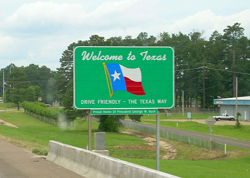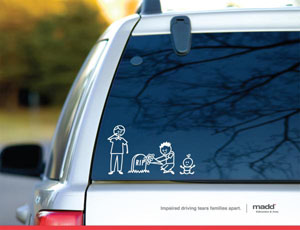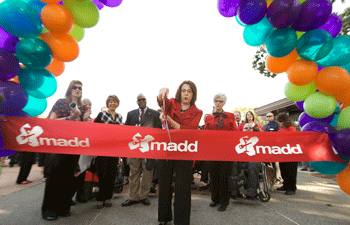
The Texas House Criminal Jurisprudence Committee met Monday in Austin to discuss creative ways to curb DWI in the state. San Antonio police Deputy Chief Anthony Trevino urged legislators to allow for permanent DWI checkpoints that would allow law enforcement to stop drivers and do routine sobriety tests near “drunk driving hot spots.” The deputy police chief’s idea was opposed by Jim Harrington of the Texas Civil Rights Project who said that this would allow for police abuse of power.
Harrington said, “Once you start setting these roadblocks, you are basically saying the government has control over your movement.”
State Representative Pete Gallego, D-Alpine, the committee chairman, wanted “creative ways” to reduce the number of DWI’s in Texas, and said that the committee was looking for a change in DWI laws to “get on the front end of the problem.” In 2010, drunk drivers with a blood alcohol level higher than 0.08 killed 1,259 people on the Texas roadways. California, which has the second highest number of DWI deaths in the country, had 791 deaths in 2010 caused by drunk drivers.
Gallego said, “It’s always bothersome when California does something better than Texas. California – with more cars, more drivers and more people – still has less DWI-related deaths than Texas does.” This hearing was Pete Gallego’s last in the state Capitol, as he was elected on November 6th to represent U.S. House District 23.
Bexar County (San Antonio) District Attorney Susan Reed expanded “no refusal” weekends to every day of the year starting in April 2012. This means that anyone suspected of DWI in Bexar County will be required to have their blood tested if they refuse the breathalyzer. Reed said of their policy, “We are now the largest metro area in Texas to have an absolute no-refusal policy.”
Bill Lewis, MADD’s public policy liaison, asked legislators to support sobriety checkpoints by passing laws to allow police officers to conduct them. He said checkpoints could save 200 lives in Texas every year. Lewis said of lawmakers, “We have asked them to provide those guidelines for, what is it 18 years? They haven’t done it, so may it’s time to try something else.” He said he would be surprised if the checkpoints do get passed into law because he recognizes that some see checkpoints as government playing “big brother.”
Lewis did suggest to the Legislature that all first-time DWI offenders be required to use an ignition interlock device on their vehicle, which would prevent a car from starting if the driver has any detectable amount of alcohol in their system. Under Texas law, it is the discretion of the judges whether the ignition interlock device is used for DWI offenders.
Texas prohibits checkpoints based on the interpretation of the U.S. Constitution, however the Corpus Christi Police Department claims to have found a loophole. Public Information Officer for the Department, Julie Garcia, claims that the department does conduct what they call “driver’s license checkpoints” routinely. If during this driver’s license checkpoint a driver is suspected to be impaired, the officer can conduct field sobriety tests, which if failed, the driver “can and will be arrested.”
Driver’s license checkpoints are also used in Lubbock County, according to Assistant District Attorney Tom Brummett, who said that these checkpoints are an effective way to legally target DWI drivers. He said, “Even though we can’t use DWI or sobriety checkpoints, the law does allow us to use driver’s license checkpoints, vehicle safety checkpoints.”

 Red Ribbon Week started as an awareness campaign to reduce the demand for illegal drugs, and eventually expanded to include alcohol, tobacco, and violence. This week, MADD is teaming up with State Farm for Red Ribbon Week to discuss the negative consequences of teenage drinking. The team are handing out a booklet called The 411 on Teen Drinking.
Red Ribbon Week started as an awareness campaign to reduce the demand for illegal drugs, and eventually expanded to include alcohol, tobacco, and violence. This week, MADD is teaming up with State Farm for Red Ribbon Week to discuss the negative consequences of teenage drinking. The team are handing out a booklet called The 411 on Teen Drinking.

 The non-profit organization MADD (Mothers Against Drunk Driving) is
The non-profit organization MADD (Mothers Against Drunk Driving) is